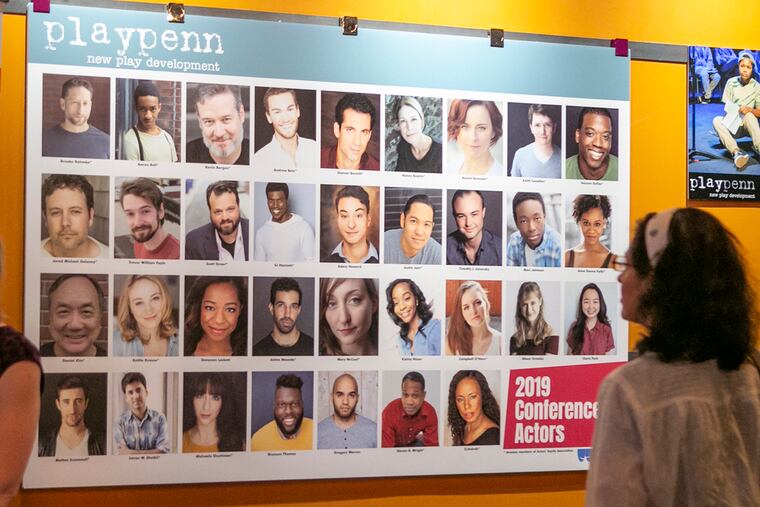Two leaders leave PlayPenn amid allegations of racism and sexual harassment
The ouster comes after weeks of social media complaints from actors and writers about the Philadelphia new-play development organization and behavior associated with it.

The founder of PlayPenn, the Philadelphia new-play development organization, resigned his position Sunday following a meeting of the group’s board of directors. His second-in-command was fired.
Their departure follows weeks of allegations of racism pouring out of the theater community — from playwrights, performers, and theatrical tech workers. There were also allegations of improper sexual advances leveled separately at a former board member and donor.
In a statement released Monday, the PlayPenn board acknowledged the group’s long association with founder and artistic director Paul Meshejian and associate artistic director Michele Volansky. Meshejian founded the group in 2004 and Volansky joined it in 2006.
“However, as a result of recent allegations of wrongdoing that members of our community have made against the organization, the PlayPenn Board of Directors decided that it was in the best interests of PlayPenn for Paul and Michele to leave their positions. We will continue our investigation into those recent allegations,” the statement said.
“We have heard from members of the artistic community that PlayPenn was not meeting community members’ expectations for racial and cultural competence. We are beginning the process of building a PlayPenn that better reflects and incorporates the diverse minds, bodies, and souls of the communities we serve.”
» READ MORE: Amid accusations of racism, calls for resignations, Philly theater organization cancels season
What this means in the long-term is unclear. Philip H. Hawkins, acting board president, said he anticipated work on the organization continuing into next year. He emphasized that the board was committed to overcoming any racial and gender-related issues.
He said the board was working with a law firm to determine what happened at the organization.
“There’s something that must have gone wrong and how can we fix it,” he said. “Our board job is to support and promote and keep PlayPenn going.”
Playwright Jacqueline Goldfinger, a former PlayPenn staffer who has been vocal in criticism of the organization, said Monday that the departures amount to “a golden opportunity” to effect change.
“Not to just change leadership, but to take a moment, step back looking at the power structure, and restructure the organization entirely from the ground up to be inclusive, anti-racist, and the place where it is safe for everyone to come and do their best work,” she said.
Performer Terrell Green, a leader of artists seeking Meshejian’s ouster, said the firings showed that artists have collective power.
“And not only the artists, but marginalized individuals have power when they begin to speak truth,” Green said. “I think it shows the power of community as well. Because as artists, we are the low people, you know, the rock bottom of the food chain ... and I think, ultimately, it shows to the other theaters that there is power in numbers.”
The allegations, which have flooded social media, were sparked by publication of a Philadelphia Metro photo spread less than a month ago that showed many Black performers participating in last year’s PlayPenn conference, its annual workshops and staged readings involving six rising playwrights.
All the photographs were from one production, playwright Dave Harris’ Incendiary, and taken together, the photos suggested PlayPenn is a model of diversity. Harris is Black. Writers and performers were incensed at what they viewed as misrepresentation. This year’s now-postponed conference features one Black playwright.
People complained on social media and at online meetings. And before long, stories began pouring out that covered everything from PlayPenn’s all-white staff, to its apparent indifference to the demands of Black vernacular speech and gesture, and its refusal to see the talent in the city’s wealth of performers of color.
At the same time, several allegations of sexual harassment were aired involving former board member and donor Victor Keen. In a statement published by WHYY.org last week, Keen apologized but did not deny the allegations.
“I am truly sorry and apologize to those who found my behavior to be inappropriate and will be more aware of my interactions with others going forward,” he wrote.
The PlayPenn board hired Griesing Law LLC to “aggressively investigate” the allegations.
The board statement issued Monday gave no timeline for changes and did not indicate if this year’s conference would be permanently postponed.